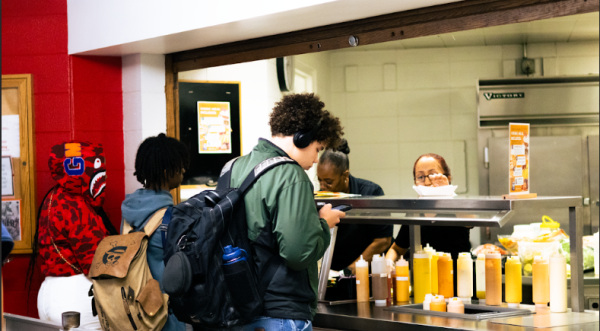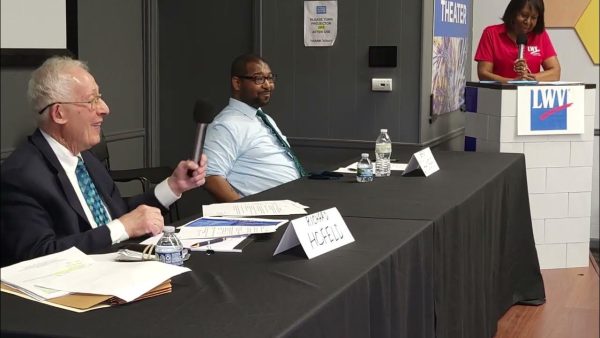War Families
Students, staff worry about loved ones
Several students and teachers have had the experience of at least one family member separated from them because of a crisis overseas. Throughout these difficult experiences they’ve been forced to learn how to stay hopeful, even though their family member may be in constant danger.
Instructional Assistant Donna Brumfield had to cope with her son leaving her for 18 months to fight overseas.
“It was very emotional from time to time. He has a daughter who was two years old when he left. I didn’t want her to not know him when he returned,” Brumfield said.
Brumfield said her son had a wife whose brother and sister were both paralyzed in a car accident while he was away. She frequently worried about how she would share this terrible news with her son.
In spite of the conflict faced at home and overseas, Brumfield and her family stayed positive. They prayed throughout their difficult experience and were able to see Brumfield’s son return home safely.
When Brumfield’s son returned he and his family changed in a positive way. They all realized the importance in family and supporting each other, she said.
Even though they were already close as a family, this experience brought them even closer.
Senior Christine Hughes had a similar experience when her uncle stayed in the Marines for 35 years. Although she and her family were very depressed while her uncle was away, they stayed hopeful and prayed every morning for his safety.
Hughes and her family also made an effort to connect with returning veterans in her family.
“Whenever someone came back, we tried to spend as much time with them as possible,” Hughes said.
Although the majority of the veterans in Hughes’s family came back even closer to their relatives, her aunt had a different situation.
“My aunt now has trouble with commitment to relationships. She has a Post Traumatic Stress Disorder and sometimes she feels as if she hears a bomb or is about to be attacked,” she said.
Sophomore Rebecca Cockrell also has a father who is involved in the military. Fortunately, he doesn’t have to work overseas.
However, he lives in Arkansas and has been gone for a year and a half. “It’s upsetting because you don’t see him everyday when you come home from school and he can’t support you in your sports,” Cockrell said.
However, this long distance relationship helped to bring the family even closer.
“We have a loving relationship because we try to spend as much time with each other when he’s home,” Cockrell said.
Although many families are able to see soldiers return from the military safely, multiple families in America aren’t nearly as lucky.
The danger in war can range from explosives, bullets, and even flamethrowers. Taking these harmful weapons into account, death and severe injury is common.
In fact, it has been recently reported that 2,206 members of the US military died and 19,987 were wounded in Afghanistan during September 23.
Soldiers who are injured often face a life of physical disability. After the wars in Iraq and Afghanistan, there were 700,000 veterans that had recognized disabilities.
War can also have other harmful after effects on soldiers and their households. Child abuse in army families is three times higher in homes where a parent is deployed.
More than 2 million American children have coped with a parent going to war. Half of these children have become clinically depressed.
The returning soldier and household parent can also easily clash and have a volatile relationship.
There are high costs to serving a country. Many war families are unaware of what the physical condition of the returning soldier will be or if the soldier will return home at all.
The only option is to be patient.





